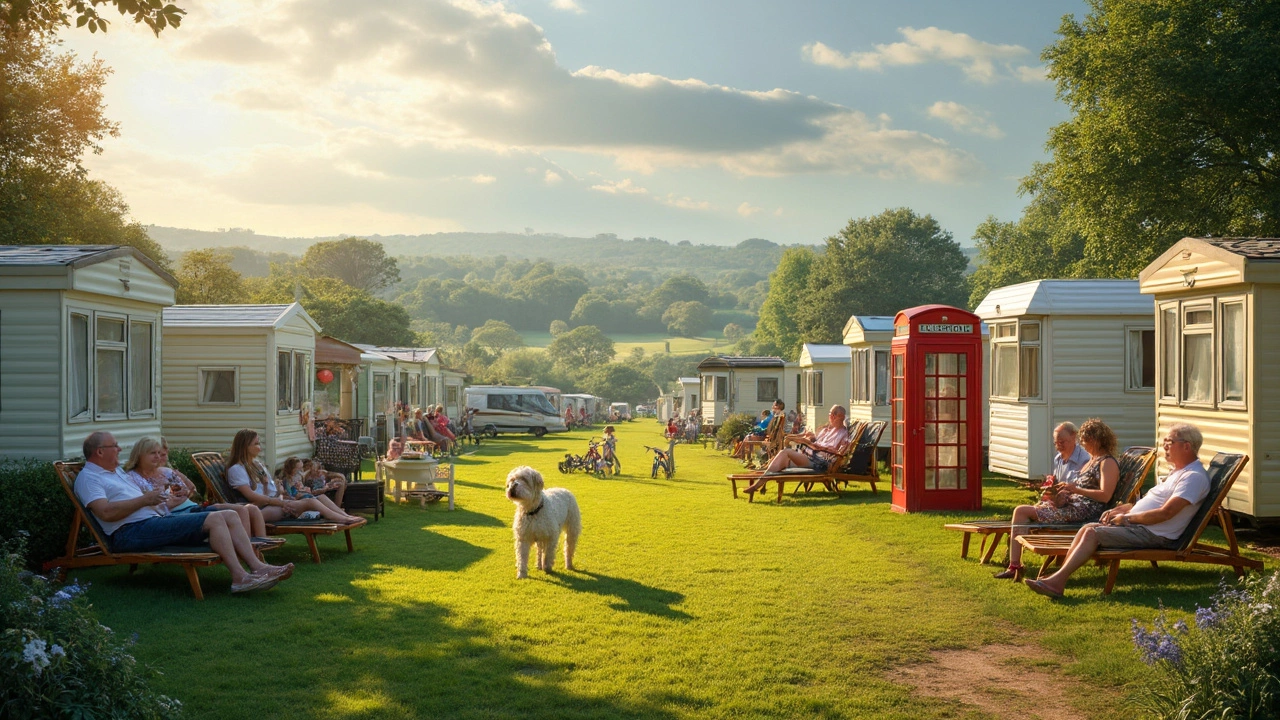Caravan Rules: Your Quick Guide to Legal Camping & Travel
Thinking about taking your caravan out for a weekend? Before you hit the road, you need to know the rules that keep you safe and out of trouble. The UK has specific laws about where you can park, how long you can stay, and what you must do with waste. Skipping these rules can lead to fines, a tow, or even a ban from a campsite. This guide breaks down the most important points so you can enjoy your trip without a hitch.
Where Can You Park Your Caravan?
In England and Wales, you can park a caravan on a public road for up to 24 hours without a permit, as long as it doesn’t block traffic. If you want to stay longer, you need permission from the landowner or a designated caravan site. Scotland is a bit more relaxed thanks to the Scottish Outdoor Access Code, but you still need to respect private property and avoid damage. Remember, a caravan isn’t a vehicle you can leave anywhere – always look for signs that say “No Parking” or “Caravan Parking Only.”
Overnight Stays and Wild Camping
Wild camping with a caravan is generally not allowed on most UK land. The law treats caravans like any other vehicle, so you need a campsite or a farmer’s permission. Some coastal areas and national parks have specific by‑laws that allow a single night if you follow the “Leave No Trace” rule. A good rule of thumb: if you can’t see a sign that explicitly allows caravanning, assume it’s not allowed. When in doubt, call the local council or check the site’s website before setting up.
Most official caravan parks require a booking in advance, especially during school holidays. They provide hookups for electricity, water, and waste, which means you won’t have to worry about illegal dumping. If you’re staying at a campsite, follow the park’s quiet hours and waste disposal rules – they’re there to keep everyone happy.
Safety Checks and Legal Requirements
Before you leave home, make sure the caravan’s brakes, lights, and tires are in good shape. The UK law requires you to have a valid MOT if the caravan is over three years old and you’re towing it on public roads. You also need a Caravan License Plate that matches your vehicle registration. Insurance is a must; most policies cover both road use and liability while parked, but double‑check the details.
Don’t forget the fire safety basics. Keep a small fire extinguisher handy and never leave a cooking stove unattended. If you’re using a gas cooker, ensure the vents are clear and the gas bottle is secured upright.
Waste Disposal and Respecting the Environment
Emptying the black water tank on a public road is illegal. Use the waste points at the caravan park or a designated disposal station. Many service areas have emptying facilities for a small fee. Rinse the tank with fresh water before you leave – it helps prevent odors and protects the environment.
Pack out everything you bring in. That means food scraps, litter, and even tiny items like bottle caps. When you leave a site clean, you’re more likely to get permission to return.
Following these caravan rules doesn’t have to be a headache. A quick check of local bylaws, a tidy caravan, and a bit of common sense go a long way. So gear up, plan your route, and enjoy the freedom of the open road – legally and safely.
Longest You Can Stay in a Caravan Park: What to Know
Ever wondered how long you can actually stay in a caravan park? This article breaks down the rules and real-life limits for extended stays. We’ll look at different park policies, local laws, and how to tell if a park is suited for full-time or just holiday visits. You'll also find tips for finding the best long-term spots and avoiding common headaches. Whether you're road tripping for months or searching for a temporary home, you'll get answers you can actually use.
